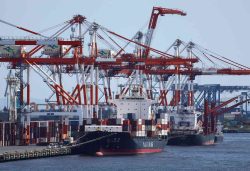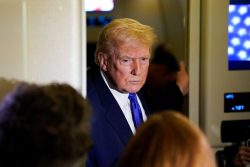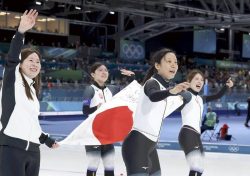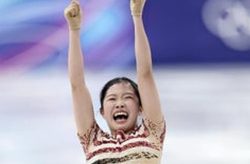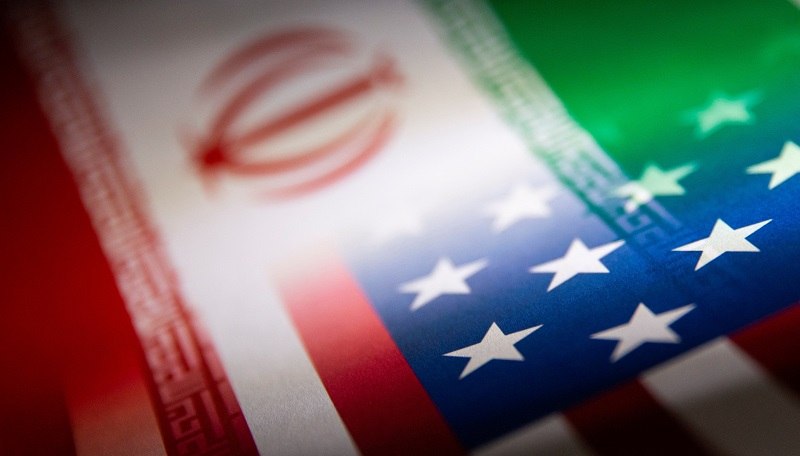
Iran and U.S. flags are seen printed on paper in this illustration taken January 27, 2022.
12:47 JST, June 30, 2022
DUBAI (Reuters) – Indirect talks between Tehran and Washington aimed at breaking an impasse over how to salvage Iran’s 2015 nuclear pact have ended in Qatar without the progress “the EU team as coordinator had hoped-for,” EU’s envoy Enrique Mora tweeted on Wednesday.
“We will keep working with even greater urgency to bring back on track a key deal for non-proliferation and regional stability,” Mora said.
A U.S. State Department spokesperson said in a statement that Iran “failed to respond positively to the EU’s initiative and therefore … no progress was made” in the talks.
The EU-mediated, indirect talks started on Tuesday with Mora as the coordinator, shuttling between Iran’s Ali Bagheri Kani and Washington’s special Iran envoy Rob Malley based in separate rooms in a hotel in Qatar’s capital.
Iran refuses to hold direct talks with its arch-foe, the United States, resulting in the “proximity” talks arrangement involving Mora.
Iran’s foreign ministry spokesman Naser Kanani said Bagheri Kani and Mora “will be in touch about continuing the path and the next stage of the talks,” Iran’s semi-official Tasnim news agency reported.
The nuclear pact seemed near revival in March but 11 months of talks between Tehran and major powers in Vienna were thrown into disarray chiefly over Tehran’s insistence that Washington remove the Islamic Revolutionary Guards Corps (IRGC), its elite security force, from the U.S. Foreign Terrorist Organizations (FTO) list.
“Iran raised issues wholly unrelated” to the nuclear agreement, the State Department spokesperson said. Tehran “apparently is not ready to make a fundamental decision on whether it wants to revive the deal or bury it,” the spokesperson said.
Iran’s Tasnim news agency, affiliated with the IRGC, blamed President Joe Biden administration’s “weakness and its inability to make a final decision” for lack of progress in the talks.
“What prevented these negotiations from coming to fruition is the U.S. insistence on its proposed draft text in Vienna that excludes any guarantees for Iran’s economic benefit,” Tasnim said.
Under the nuclear pact, Tehran limited its uranium enrichment program, a potential pathway to nuclear weapons though Iran says it seeks only civilian atomic energy, in exchange for relief from the economic sanctions.
But in 2018, then-U.S. President Donald Trump abandoned the deal, calling it too soft on Iran, and reimposed harsh U.S. sanctions, spurring Tehran to breach nuclear limits in the pact.
Top Articles in News Services
-

Prudential Life Expected to Face Inspection over Fraud
-

Hong Kong Ex-Publisher Jimmy Lai’s Sentence Raises International Outcry as China Defends It
-

Japan’s Nikkei Stock Average Touches 58,000 as Yen, Jgbs Rally on Election Fallout (UPDATE 1)
-

Trump Names Former Federal Reserve Governor Warsh as the Next Fed Chair, Replacing Powell
-

Suzuki Overtakes Nissan as Japan’s Third‑Largest Automaker in 2025
JN ACCESS RANKING
-

Japan Institute to Use Domestic Commercial Optical Lattice Clock to Set Japan Standard Time
-

Israeli Ambassador to Japan Speaks about Japan’s Role in the Reconstruction of Gaza
-

Japan PM Takaichi’s Cabinet Resigns en Masse
-

Man Infected with Measles May Have Come in Contact with Many People in Tokyo, Went to Store, Restaurant Around When Symptoms Emerged
-

Prudential Life Insurance Plans to Fully Compensate for Damages Caused by Fraudulent Actions Without Waiting for Third-Party Committee Review


